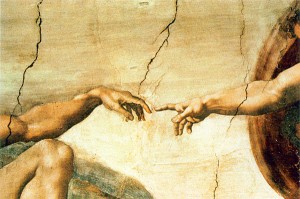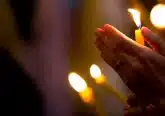Theology of the Body in schools more than God-based sex ed

A popular misunderstanding holds that “Theology of the Body” programs in Catholic schools represents little more than sex education with a religious gloss.
Father Thomas Wray, director of the archdiocesan Office of Evangelization and Catechesis, is happy to dispel that notion.
“Theology of the Body is a view of the person as a human being,” he said. “It’s about God’s purpose for us. It asks the basic questions: Who am I? Why am I here? How should I live? Why are we bodied, why do we have bodies? Why am I male, or why I am female?
“It’s way more than sex ed. It’s a narrative of God’s story.”
For that reason, the concept is being developed into age-appropriate presentations for even the earliest classroom grades. Adapting “Theology of the Body” education for the youngest students in the Cincinnati archdiocese is a pilot project at present. It’s also a pioneer project.
“We think it’s eventually going to be picked up nationally,” Father Wray said. “There are lots of folks who are watching what we’re doing.”
What they’ve done so far, at the direction of Archbishop Dennis M. Schnurr, is to develop content and instructional methods to integrate Theology of the Body into curriculum for younger children, an initiative made possible by donations to One Faith, One Hope Love. While the bulk of the campaign’s dedication to Catholic education is earmarked for tuition assistance, the project is among the ways contributors are helping to foster quality and vitality in our schools.
“We’re delivering these materials courtesy of the campaign,” Father Wray said. “It’s essential that we thank the campaign’s benefactors and donors.”
Father Wray’s office has worked with Ruah Woods over the past year to create a map, the revised “Graded Course of Study: Pre-Kindergarten through 4th Grade Catechetical Programs,” which adds Theology of the Body to the other components: knowledge of the faith; knowledge of sacraments, moral formation; praying with Christ; living in the community of the church, and living as a Christian in society.
See previous coverage of the graded course of study
“We’re weaving in this new note in the symphony,” Father Wray said. “The archbishop sees it as part of his mission to create a culture of vocations. We live amid a metallic, corrosive structure of the culture, and this is a tangible tool for opposing it.”













